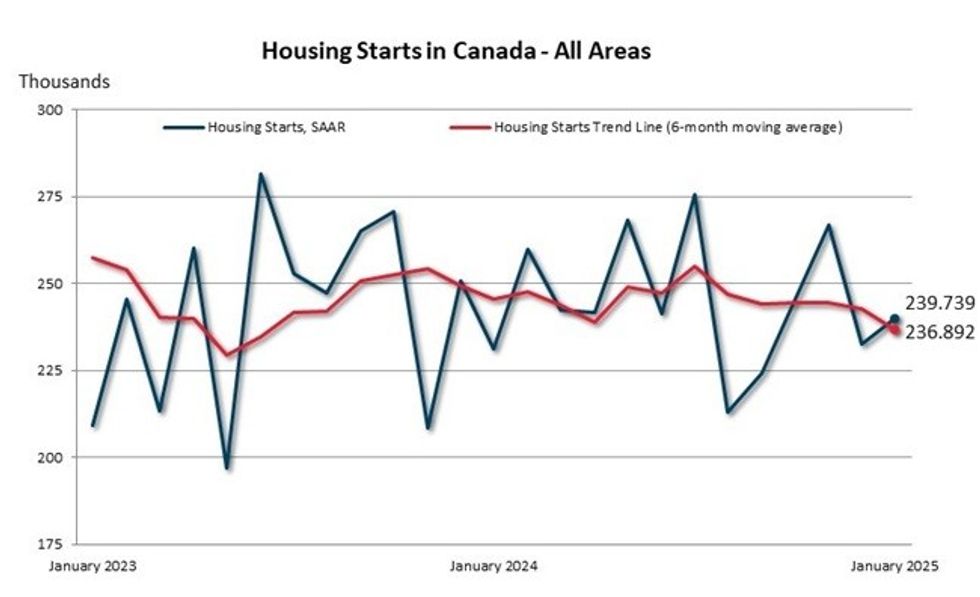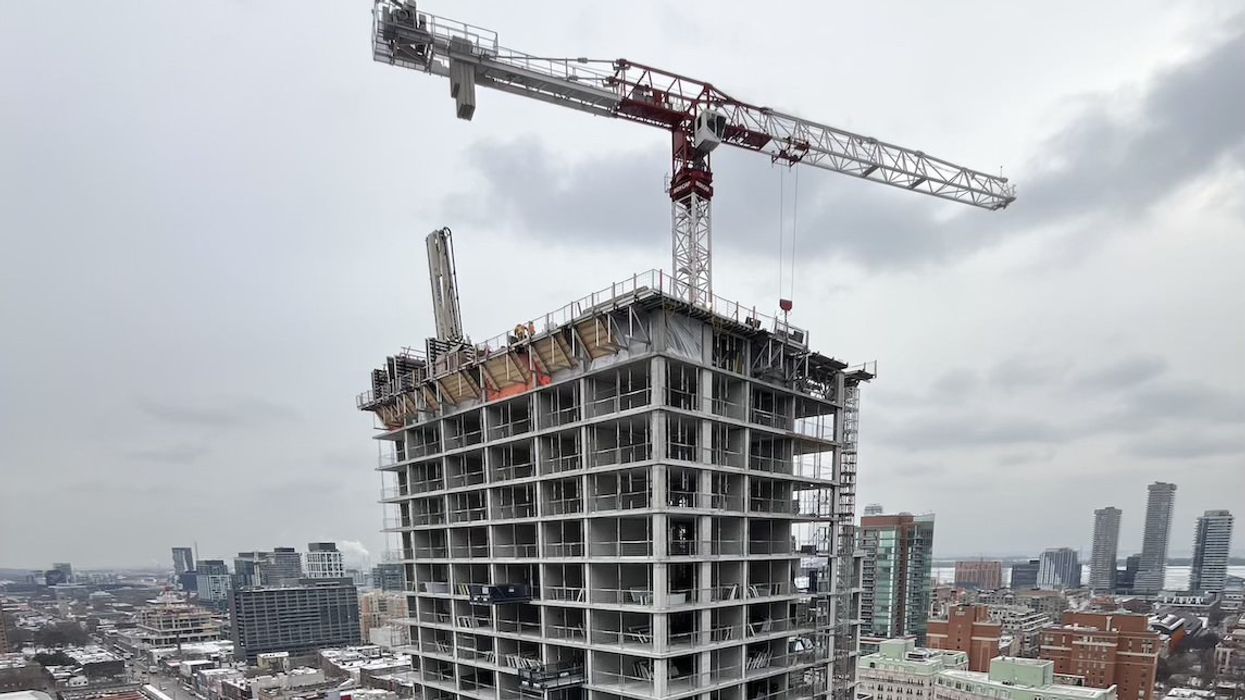Canada Mortgage and Housing Corporation (CMHC) released its first housing starts report of 2025 on Monday, and while the data shows a 3% pick-up in the annual rate of starts between December and January, any optimism for the rest of year is tempered by trade uncertainty as experts warn of the likely drag on housing construction.
Putting the tariff variable aside for a moment, CMHC says that the seasonally adjusted annual rate (SAAR) of starts came in at 239,739 units last month, up from 232,492 in December. The agency also reports that actual starts in centres with populations of at least 10,000 rose 7% year over year to 15,930 units.
Meanwhile, Montreal saw a 112% increase (year over year) in actual starts, while Vancouver posted a lesser increase of 37%. Conversely, starts slipped 41% (year over year) in Toronto.
In a press release, CMHC’s Deputy Chief Economist Tania Bourassa-Ochoa says that overall housing starts in January were propped up by an 8% increase in multi-unit starts, “particularly purpose-built rentals” in Quebec and BC. “While these increases show early signs of progress to begin the year, foreign trade risks add significant uncertainty for housing construction going forward,” she adds.

In an analysis of Monday’s data, Desjardins Economist Maëlle Boulais-Préseault points out that a rebound of some sort was more or less expected after the monthly SAAR plunged 13% in December. January’s numbers are also in line with Desjardins’ forecast, which called for 237,000 units.
“While some factors may give Canada’s residential construction a boost in 2025, including lower interest rates and stabilizing construction costs, we still expect housing starts to be somewhat modest in the year ahead,” Boulais-Préseault writes.
This is in line with CMHC’s latest Housing Market Outlook, which projects that starts will slow down between this year and into 2027. Boulais-Préseault points to the skilled worker shortage, a lack of vacant land, and zoning rules as factors that will pull housing construction down over the next few years.
“If tariffs are imposed, construction costs could continue to rise in 2025,” she adds. “The list of US imports that would be subject to Canadian countertariffs includes some materials used in the construction industry, such as wood products, metals, and paint. This could also put upward pressure on costs if Canadian substitutes can’t be found.”
An earlier report from Desjardins says that inflation on construction costs could reaccelerate around 2025-2026 in the event of “aggressive retaliatory tariffs” on US goods.





















